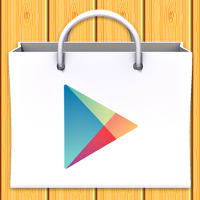


Follow other stores and know who is following you - don't worry, you can keep things private too Create your store and choose its name, logo, and color theme Downgrade your apps to previous versions Find apps that are not available in other Android marketplaces Download your favorite Android apps privately and without signing up It offers the chance for any user to create and manage their own store, upload their own apps, follow community recommendations and discover new content.Ĭan’t find a specific app on mainstream Android app stores? Aptoide probably has it! And don’t worry: all the apps are checked for viruses, and we perform extra security tests to ensure your Android device is always safe.Īptoide is reinventing app distribution and discovery in a social and collaborative way. However, if an app has a significant portion of its user base that is still on JB, developers can upload multiple APKs to the Play Store so that even Android 4.1-4.3 devices can continue receiving app updates.įor more details, check out the Android Developers Blog.Aptoide is an open source independent Android app store that allows you to install and discover apps in an easy, exciting and safe way.Īptoide is community-driven and delivers apps through a social experience. If they set their apps to target API version 19+ (Android 4.4 KitKat), JB phones will still be able to install older versions of the app, but they will not see newer versions. Either way, it will end support for these Android versions, which will lighten the load of its development team (older versions require a lot of special-case handling).Īpp developers are encouraged to also drop support for Jelly Bean. All three versions of JB account for less than 1% of active Android devices and Google isn’t convinced that these are actually in use. Other major additions include Google Now, the now-deprecated Android Beam, expandable notifications and the ability to mute notifications from individual apps, along with a number of audio improvements (AAC support, gap-less playback, multi-channel audio, USB audio for external DACs).Īndroid 4.2 came later that year, 4.3 arrived in 2013, both kept the Jelly Bean name. It brought major improvements such a Project Butter, which made the UI run smoothly (with vsync at 60 Hz). Jelly Bean was first announced in 2012, nine years ago. The lifeline hasn’t been cut yet, JB phones will receive one last update with version 21.30.99, which is scheduled fore release at the end of August. Google will soon stop updating Play Services for phones running Android Jelly Bean – this covers all three versions, 4.1, 4.2 and 4.3 (API version 16 through 18, respectively).


 0 kommentar(er)
0 kommentar(er)
